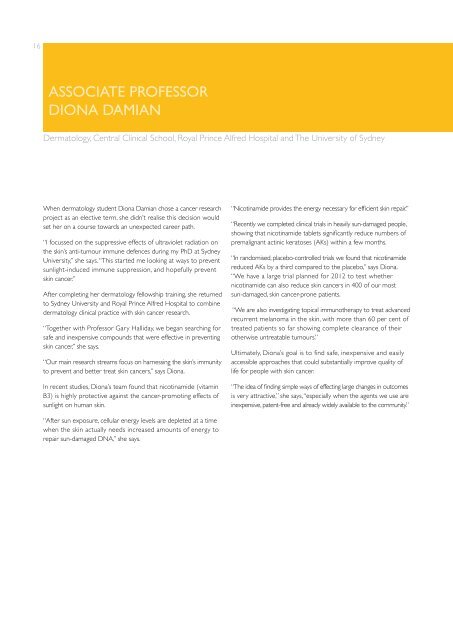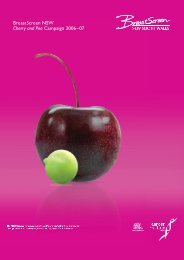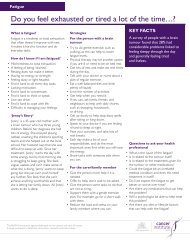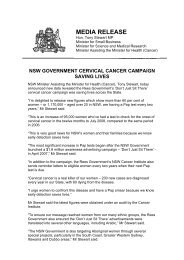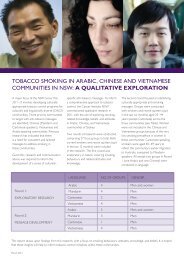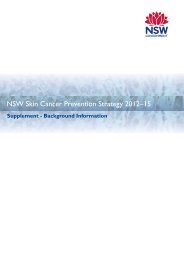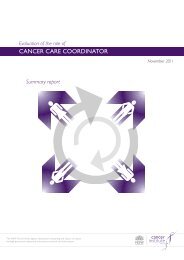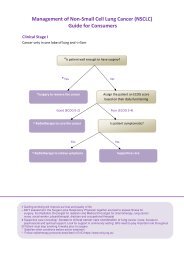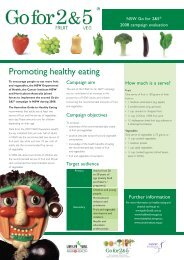NSW Research Achievements Report 2011 - Cancer Institute NSW
NSW Research Achievements Report 2011 - Cancer Institute NSW
NSW Research Achievements Report 2011 - Cancer Institute NSW
Create successful ePaper yourself
Turn your PDF publications into a flip-book with our unique Google optimized e-Paper software.
16Associate ProfessorDiona DamianDermatology, Central Clinical School, Royal Prince Alfred Hospital and The University of SydneyWhen dermatology student Diona Damian chose a cancer researchproject as an elective term, she didn’t realise this decision wouldset her on a course towards an unexpected career path.“I focussed on the suppressive effects of ultraviolet radiation onthe skin’s anti-tumour immune defences during my PhD at SydneyUniversity,” she says. “This started me looking at ways to preventsunlight-induced immune suppression, and hopefully preventskin cancer.”After completing her dermatology fellowship training, she returnedto Sydney University and Royal Prince Alfred Hospital to combinedermatology clinical practice with skin cancer research.“Together with Professor Gary Halliday, we began searching forsafe and inexpensive compounds that were effective in preventingskin cancer,” she says.“Our main research streams focus on harnessing the skin’s immunityto prevent and better treat skin cancers,” says Diona.In recent studies, Diona’s team found that nicotinamide (vitaminB3) is highly protective against the cancer-promoting effects ofsunlight on human skin.“Nicotinamide provides the energy necessary for efficient skin repair.”“Recently we completed clinical trials in heavily sun-damaged people,showing that nicotinamide tablets significantly reduce numbers ofpremalignant actinic keratoses (AKs) within a few months.“In randomised, placebo-controlled trials we found that nicotinamidereduced AKs by a third compared to the placebo,” says Diona.“We have a large trial planned for 2012 to test whethernicotinamide can also reduce skin cancers in 400 of our mostsun-damaged, skin cancer-prone patients.“We are also investigating topical immunotherapy to treat advancedrecurrent melanoma in the skin, with more than 60 per cent oftreated patients so far showing complete clearance of theirotherwise untreatable tumours.”Ultimately, Diona’s goal is to find safe, inexpensive and easilyaccessible approaches that could substantially improve quality oflife for people with skin cancer.“The idea of finding simple ways of effecting large changes in outcomesis very attractive,” she says, “especially when the agents we use areinexpensive, patent-free and already widely available to the community.”“After sun exposure, cellular energy levels are depleted at a timewhen the skin actually needs increased amounts of energy torepair sun-damaged DNA,” she says.


